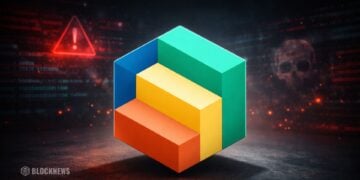- Ethereum’s Vitalik Buterin advocates for AI in auditing to address code bugs.
- Dencun upgrade approaching, with recent testnet bug highlighting risks.
- OpenZeppelin’s tests show AI can find vulnerabilities in Ethereum’s smart contracts.
Ethereum’s co-founder, Vitalik Buterin, posted on X the potential of artificial intelligence to tackle one of the blockchain network’s most pressing challenges: deeply embedded bugs in its code. With the Ethereum community on the edge of its seat awaiting the Dencun upgrade, Buterin’s advocacy for AI-assisted audits has sparked a discussion on the future of blockchain security.
The Promise of AI in Code Auditing
Buterin, in a digital message, conveyed his optimism about leveraging AI technology to scrutinize and rectify problematic code segments within Ethereum’s framework. This approach is seen as a pivotal strategy to safeguard the network against vulnerabilities that could compromise its integrity and user trust.
Challenges and Opportunities
While the potential for AI in enhancing code audits is vast, opinions on its reliability vary. An experiment conducted by OpenZeppelin with OpenAI’s GPT-4 on Ethereum’s Solidity smart contracts revealed that the AI could successfully pinpoint issues in a significant portion of the tested challenges. This outcome has stirred conversations around the integration of AI in the routine maintenance and upgrading of blockchain technologies, particularly as Ethereum gears up for significant developments on its roadmap.
Buterin’s forward-thinking stance on AI reflects a broader interest in adopting cutting-edge technologies to bolster Ethereum’s security and functionality, especially in the lead-up to crucial network upgrades. As the blockchain space continues to evolve, the role of AI in preempting and resolving technical challenges remains a key area of exploration and debate.














